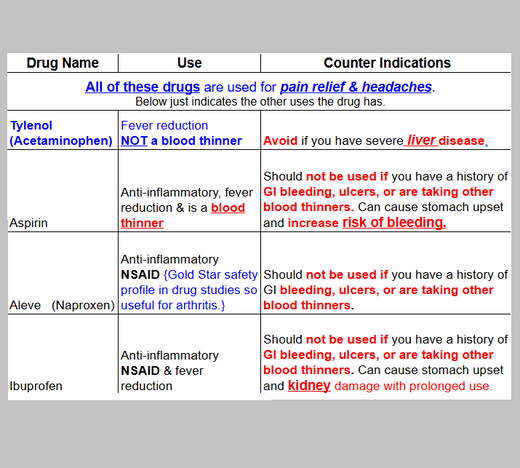Over-the-counter (OTC) medications are widely available, but it's important to understand their differences and potential impacts on your health. Four common OTC medications used for headaches and pain relief, along with their unique characteristics:
Aleve (Naproxen): Known for its excellent safety profile, Aleve is effective for long-term inflammation reduction ie arthritis
Ibuprofen: This should be taken according to the recommended dosage on the label to avoid serious health risks, including overdose and potential KIDNEY damage.
Tylenol (Acetaminophen): Ideal for pain relief if you have ulcers or are on blood thinners, as it does NOT cause excessive bleeding. Avoid if you have serious Liver disease.
Happy New Year
We are not doctors and are not dispensing medical advice. We are sharing information you can discuss with your doctor to find out what is right for you.



Share:
Improve Balance and Reduce Falls
Congestion Remedies